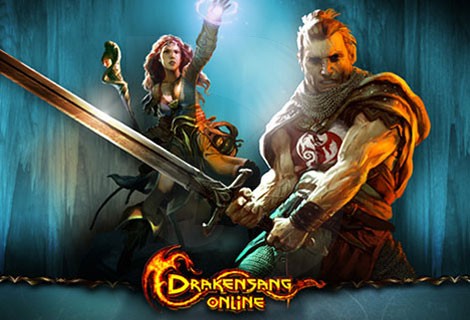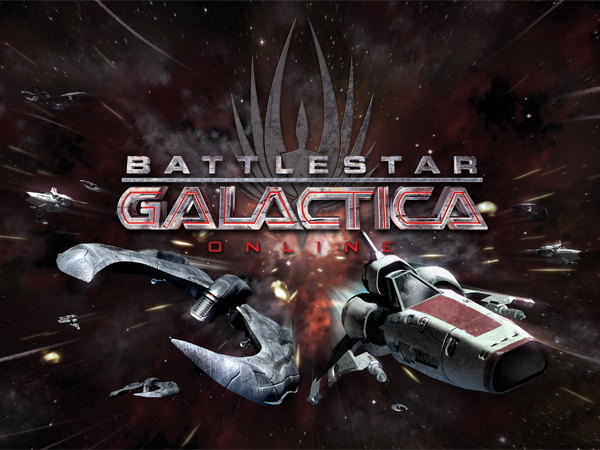While PCs have lead the way as a medium for free-to-play games, it’s actually more complicated than that. Some of these free-to-play games have used Facebook as a platform, some have implemented their own launchers and some are integrated into the web browsers themselves. In is in the latter realm that Bigpoint has made it’s name, perhaps most famously in the U.S. for BattleStar Galactica Online. The company has a portfolio of dozens of titles which has evolved a great deal over the past decade. We talked with Daniel Norcia, Director of Performance Marketing at Bigpoint, about the company’s latest moves.
Talk to me about Drakensang Online and why you think it will be an important title for Bigpoint.
Daniel Norcia: Drakensang Online is a free-to-play hack-n-slash MMORPG based on the popular Drakensang PC series. We took the core IP and similar style of game, and translated it into a browser title that makes it easy for gamers to access without download or installation. We’re very excited about Drakensang Online because it has incredibly engaging PvP and PvE gameplay and impressive graphical detail, built atop our own “Nebula3” engine. The game is approaching its first anniversary and has already won numerous awards with nearly 10 million registered users. It’s proven to be a very high-caliber title for Bigpoint’s portfolio. With this momentum, we see Drakensang Online making an even greater impact and being successful worldwide because it has limitless possibilities for expansion and there are many features about the game that players will find appealing.

What regions of the world have been most important to Bigpoint and where is the company looking to expand to next?
Daniel Norcia: Since Bigpoint’s founding in 2002, we’ve established ourselves as a leader and pioneer in the free-to-play sector of the Western world. The European market has been our home-base, but our goal is to also grow internationally. We consider every region to be important because there are gamers and potential opportunities all over the world. We recognize that each market is different so that’s why we’re committed to taking a local approach in each territory. Two years ago, we set up a North American office in San Francisco and have been aggressively pursuing business and development here. Last year, we also opened up multiple new locations in Sao Paolo, Paris, London and Rome — core markets that we’d like to expand further in.
What sort of continuity or social elements do you hope to promote between Bigpoint published titles and would you look to increase such connections in the future?
Daniel Norcia: As we see more developers entering the space and the increasing cost of user acquisition, the ability to cross-promote between our titles becomes even more valuable for us, specifically with regard to drawing existing users to our new games. We are able to recommend other Bigpoint titles to over 280 million users in our network, based on features they enjoy about the current title(s) they are playing. We have also noticed that players appreciate our cross-promotion efforts — they are interested in new product development, and feel excited to be one of the first to gain access to a new title and provide feedback. This has strengthened the relationship we have with our community. Bigpoint continually seeks to improve our communication with our existing audience; exposing our users to new products is a big part of that effort.
What does Bigpoint consider most necessary and effective when it comes to marketing a new Bigpoint title? What is the comparative focus on their existing audience, social efforts, PR, or other tactics?
Daniel Norcia: With every new title, it’s critical for us to build pre-launch awareness with dedicated PR, updated websites, community forums, and social media efforts to grow a community of users early on. Each of our games have their own social media presence and continue to engage with the audience throughout the entire product lifecycle. When it comes to performance marketing, taking a regional approach is important because it gives us an indication of what kind of monetization patterns we will see in different countries. Based on the results, we are able to more completely formulate marketing rollout plans for those regions. We focus on every aspect leading up to a product’s launch, and even post-launch. As PR continues to inform our users and the online gaming community at large, new marketing campaigns and business development distribution begin to take place — and can potentially live on for years.
How has the Bigpoint mobile strategy evolved, now that the company is no longer producing those games internally?
Daniel Norcia: We recently announced our shift in mobile strategy to focus on publishing rather than internal development of mobile titles. We believe in the importance of mobile, but also understand that it is a different market than what we are experts in; therefore we want to concentrate on our core capabilities. With our knowledge and extensive global distribution network with over 1,000 partners, built from the ground up, we believe we can achieve greater success as a publisher of third party mobile games, and will continue to explore other opportunities beyond browser games.

Games like Battlestar Galactica Online have been significant for Bigpoint. With Game of Thrones Seven Kingdoms in the works, do you see licensed game as becoming a bigger part of your portfolio?
Daniel Norcia: Having Hollywood IP-based titles in our portfolio really adds to the diversity of the types of games we can deliver. We’re thrilled to have the opportunity to work on projects like Battlestar Galactica Online, Universal Monsters Online, Game of Thrones Seven Kingdoms, et al. and create new extensions of the IPs for fans and new enthusiasts to experience online. Additionally, as we enter new markets, we have the leverage of world class IPs, which is useful in establishing and building an ongoing connection to our community. The licensed games are significant to our portfolio, but we also like to maintain balance and shape everything forward including our organically-grown titles such as the action MMORPG, Drakensang Online, and casual farming sim, Farmerama.
Why do you think browser based games have worked so well for Bigpoint and do you see their reach increasing as time goes on?
Daniel Norcia: As a developer and publisher of browser-based titles over the past decade, we’ve witnessed an explosion of browser games within recent years. In our early days, we built simple flash-based titles, and later developed MMOs like Dark Orbit and Seafight; today we have bigger budget titles like Battlestar Galactica Online and Universal Monsters Online. Bigpoint has been able to achieve success in the browser games segment because we’ve been able to mature with- and within the market. We have always been open to innovation and adopting the latest technology such as the Unity 3D platform — this enables us to sustain the standard of high-quality browser games in this era. We also expect development of browser games to surge forward as even traditional game developers like Sony and EA are beginning to invest in this space.
Daniel, thanks.
Like browser-based games Experienced a Bigpoint title Join the discussion on Facebook.

